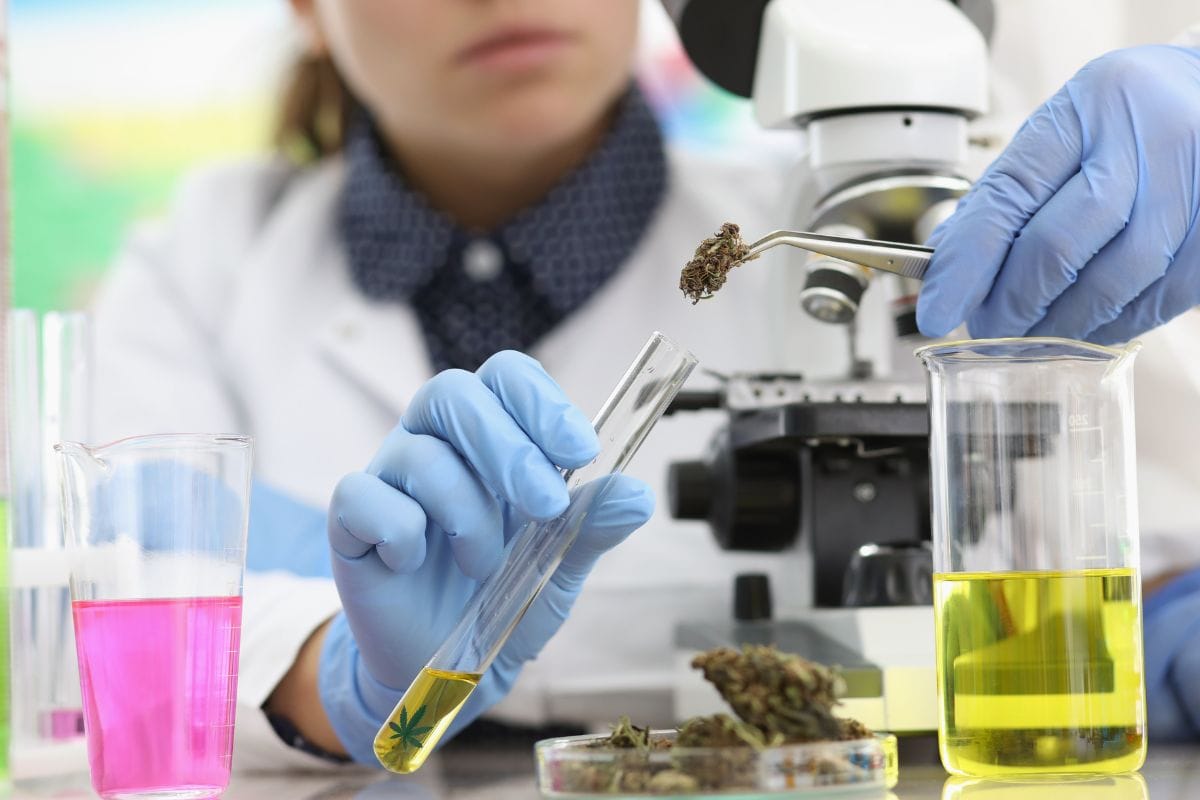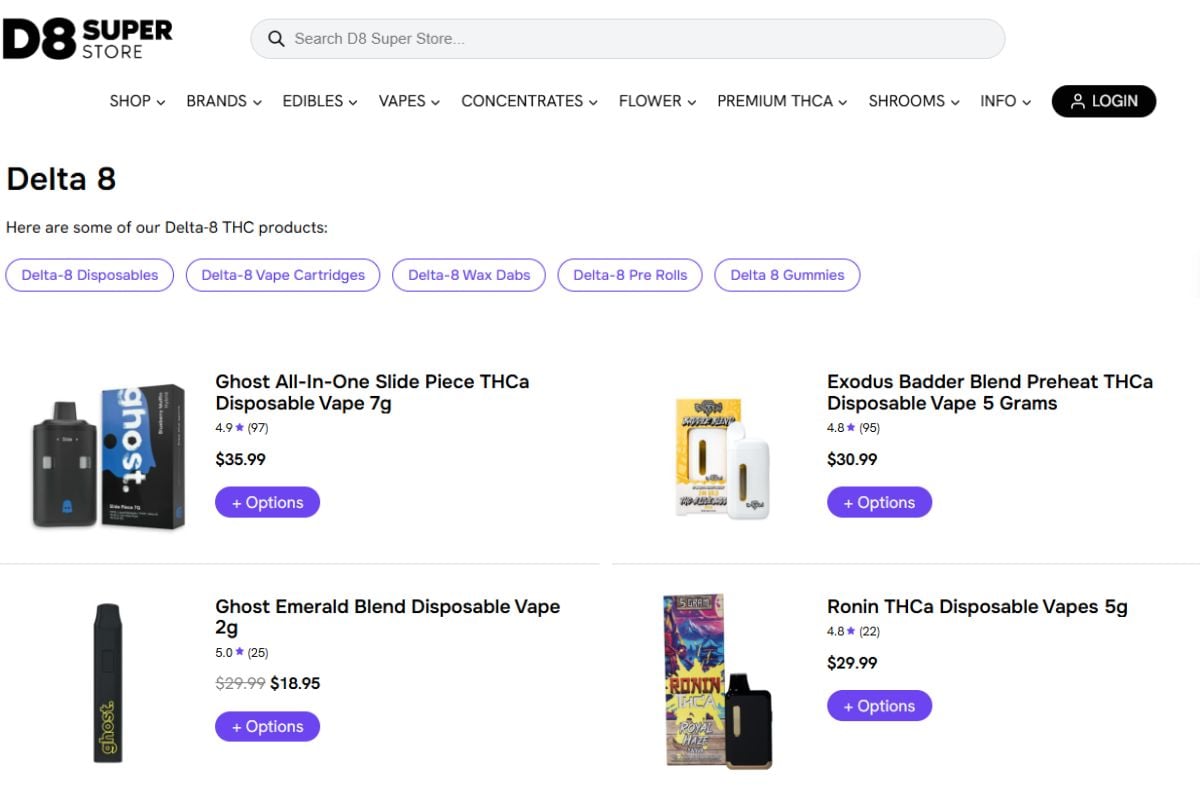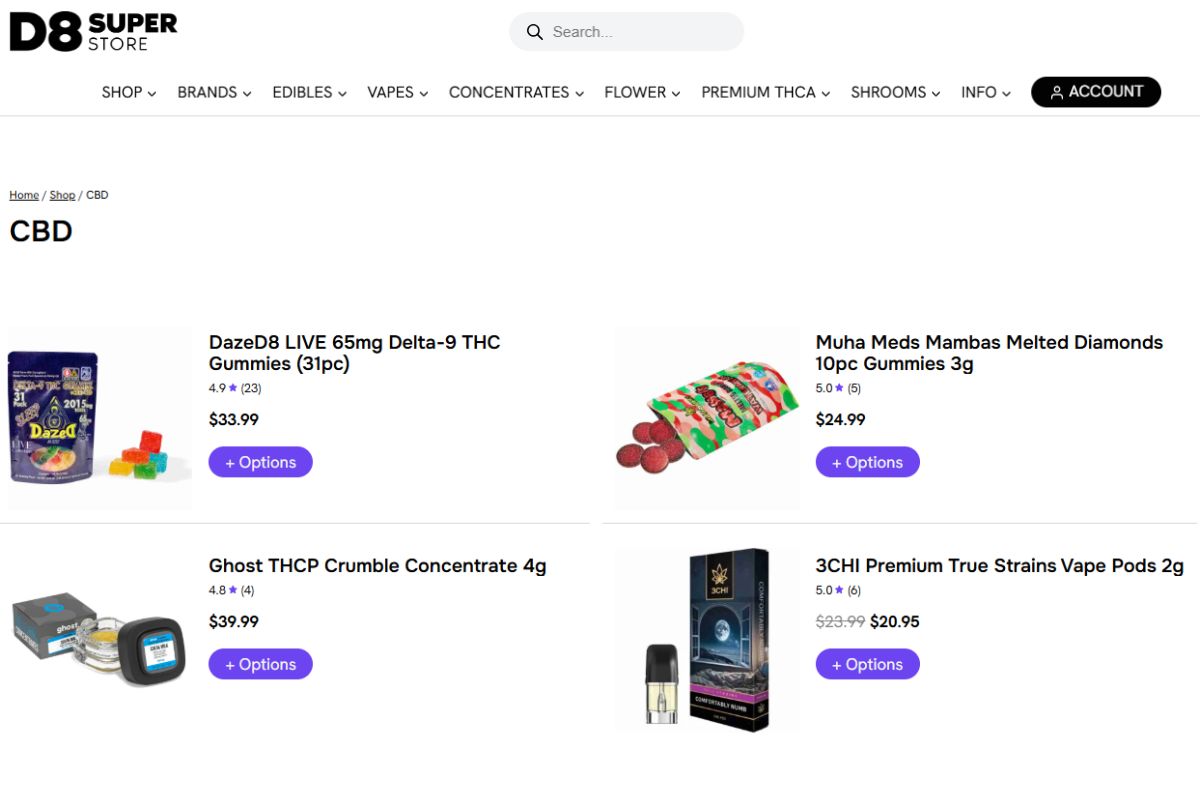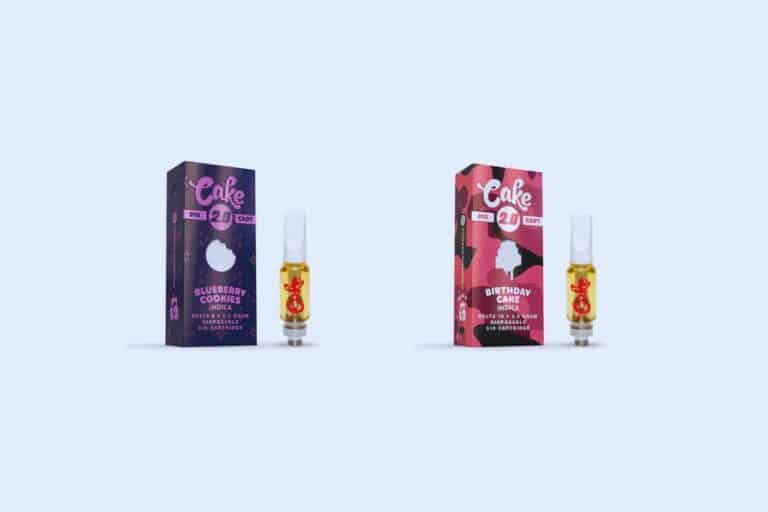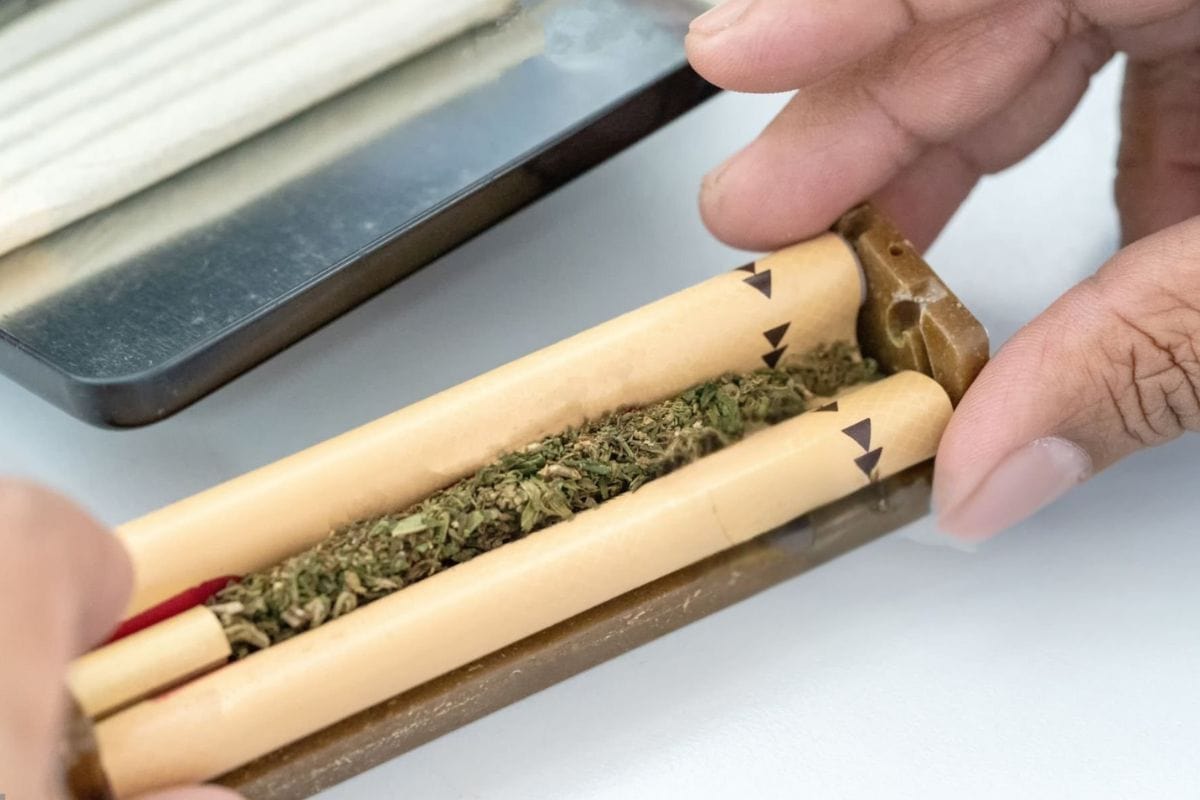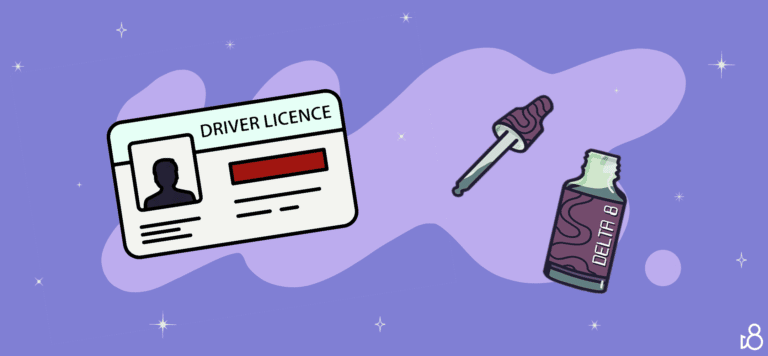How Much THC is in Delta 8? Understanding the Potency and Effects
Introduction
Delta 8 THC is rapidly gaining popularity in the hemp industry and cannabis industry community for its milder effects on health compared to Delta 9 THC. This cannabinoid offers a less intense psychoactive experience but still provides a euphoric high.
- Introduction
- What is Delta 8 THC?
- How Much THC is in Delta 8?
- How Delta 8 Compares to Delta 9 THC
- Chemical Structure and Action of Delta 8
- Is Delta 8 Considered "Real" THC?
- Delta 8 in Edibles: Gummies and Capsules
- Delta 8 in Vape Cartridges and Disposables
- Does Delta 8 Get You High?
- How Long Does a Delta 8 High Last?
- Delta 8 Dosage Guidelines
- Delta 8 THC in Hemp vs. Marijuana
- How is Delta 8 Made?
- How Delta 8 Affects the Body
- Therapeutic Benefits of Delta 8 THC
- Side Effects of Delta 8 THC
- Delta 8 vs. CBD: Key Differences
- Delta 8 vs. Delta 10 and HHC
- Legality of Delta 8 THC
- FDA and DEA Stance on Delta 8
- Conclusion
Whether you’re new to the world of cannabinoids or a seasoned user, understanding the potency of Delta 8 THC is crucial for safe and effective consumption. In this article, we’ll explore how much THC is in Delta 8, its effects, and the differences between it and other cannabinoids.
What is Delta 8 THC?
Delta 8 THC is a naturally occurring chemical compound found in hemp and cannabis products. It is an isomer of Delta 9 THC, the primary psychoactive compound in marijuana and other hemp products . Delta 8 is often extracted from CBD (cannabidiol) and can be found in various hemp derived products like edibles, vape cartridges, and tinctures.
How Much THC is in Delta 8?
Delta 8 THC products typically contain varying amounts of THC, depending on the product’s concentration. Most Delta 8 products on the market, such as gummies, vapes, or capsules, contain 10-30mg of Delta 8 per dose, which contributes to various health effects . However, higher-potency options can offer more significant amounts, like 50-100mg per serving.
How Delta 8 Compares to Delta 9 THC
Delta 9 THC is the most well-known form of THC found in marijuana, responsible for producing the classic “high” associated with cannabis use. Delta 8, on the other hand, is approximately 50-70% as potent as Delta 9. This makes Delta 8 a milder alternative, often referred to as the nicer younger sibling of Delta 9, ideal for users who prefer a less intense effect, especially in discussions regarding pediatric oncology . who prefer a less intense effect but still want the therapeutic aspects and benefits of different cannabinoids.
Chemical Structure and Action of Delta 8
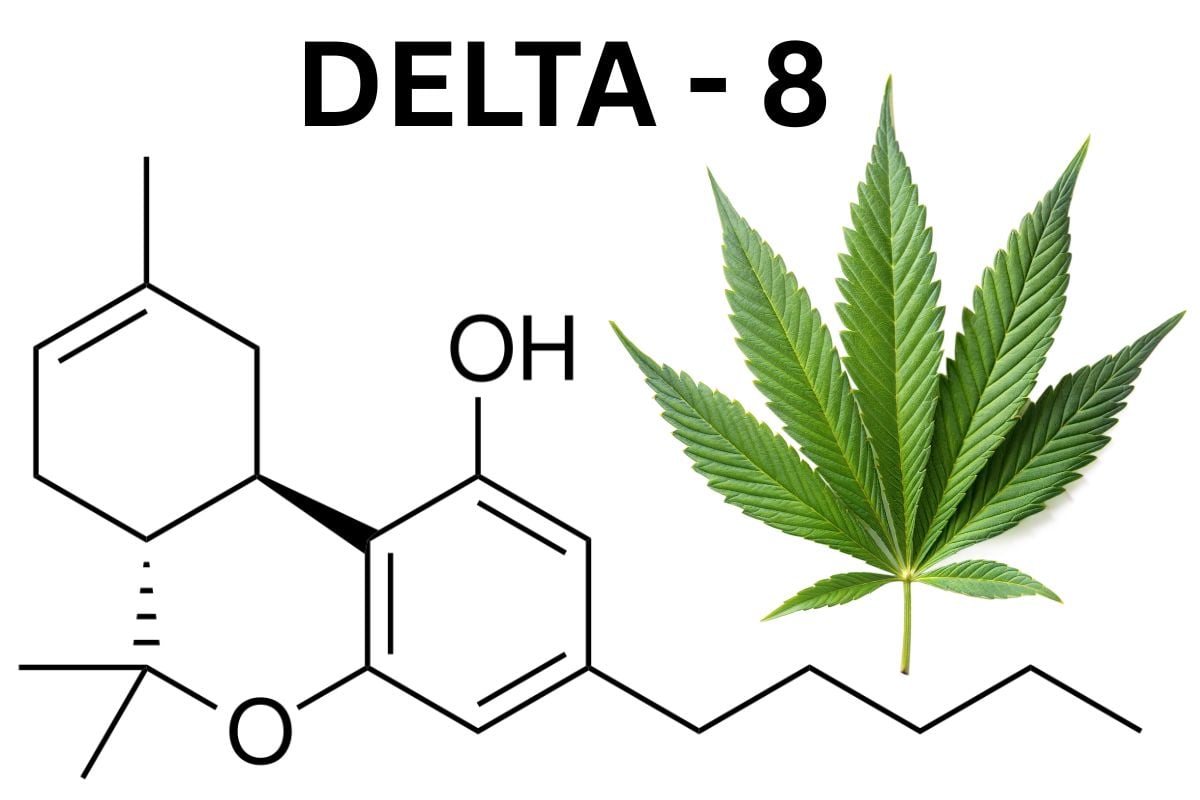
Delta 8 THC has a chemical structure similar to Delta 9 THC, but with a subtle difference in the placement of the double bond between the carbon atoms in the carbon chain. This difference, due to the chemical synthesis, is significant enough to result in different effects on the body and mind. Delta 8 acts as a partial agonist of CB1 and CB2 receptors in the endocannabinoid system, offering psychoactive effects but at a much lower intensity than Delta 9.
Is Delta 8 Considered “Real” THC?
Yes, Delta 8 THC is indeed a form of THC. While it is chemically similar to Delta 9 THC, it is typically derived from hemp, making it relevant for medical care applications . Delta 8 interacts with the endocannabinoid system in much the same way but with less potency, resulting in a different experience that many users find more manageable and with a better safety profile .
Delta 8 in Edibles: Gummies and Capsules
Edibles are one of the most popular ways to consume Delta 8. Products like Delta 8 gummies and hemp derived products available at convenience stores and gas stations typically contain 10-25mg per serving. The onset time for edibles can range from 30 minutes to 2 hours, but the effects can last much longer—sometimes up to 8 hours, depending on the dose.
Delta 8 in Vape Cartridges and Disposables
| Aspect | Vape Cartridges (Delta-8) | Disposables (Delta-8) |
|---|---|---|
| Design | Requires a separate battery/device (usually 510-thread) | All-in-one device with pre-charged battery and built-in cartridge |
| Ease of Use | Slightly more complex; attach to a compatible battery | Extremely easy; use straight out of the box |
| Refillability | Not refillable, but cartridges can be replaced | Not refillable or rechargeable; single-use only |
| Portability | Compact, but needs a battery unit | Ultra-portable and lightweight |
| Cost | Usually more cost-effective over time with reusable batteries | Higher cost per use due to single-use design |
| Battery Life | Depends on the battery used; rechargeable | Limited; once dead, the device is discarded |
| Variety & Potency | Wide selection of strains, flavors, and Delta-8 potencies | Also comes in various strains but with less customization |
| Environmental Impact | More eco-friendly (reusable battery) | Less sustainable (single-use waste) |
| Who It’s Best For | Regular users who want flexibility and savings | Beginners or casual users loo |
Delta 8 vapes are another common form of consumption, often available at gas stations . These products often contain a higher concentration of Delta 8, typically 85-95% pure distillate. The effects are felt almost immediately, as the compound enters the bloodstream directly through the lungs. The high from vaping Delta 8 tends to be more intense but shorter in duration, usually lasting 1-3 hours.
Does Delta 8 Get You High?
Yes, Delta 8 THC can get you high, but the experience is much milder than that of Delta 9 THC. Users report a clear-headed high that interacts effectively with cannabinoid receptors, with less anxiety, paranoia, and confusion compared to by products of Delta 9 . Instead, Delta 8 offers a relaxed, euphoric sensation that is often described as more manageable and calming, although more research is needed .
How Long Does a Delta 8 High Last?
The duration of a Delta 8 high depends on the method of consumption. Vaping Delta 8 usually results in a high that lasts between 1-3 hours, whereas edibles can provide a much longer experience, ranging from 4-8 hours. The high from edibles may also come on slower but tends to be more intense and prolonged.
Delta 8 Dosage Guidelines
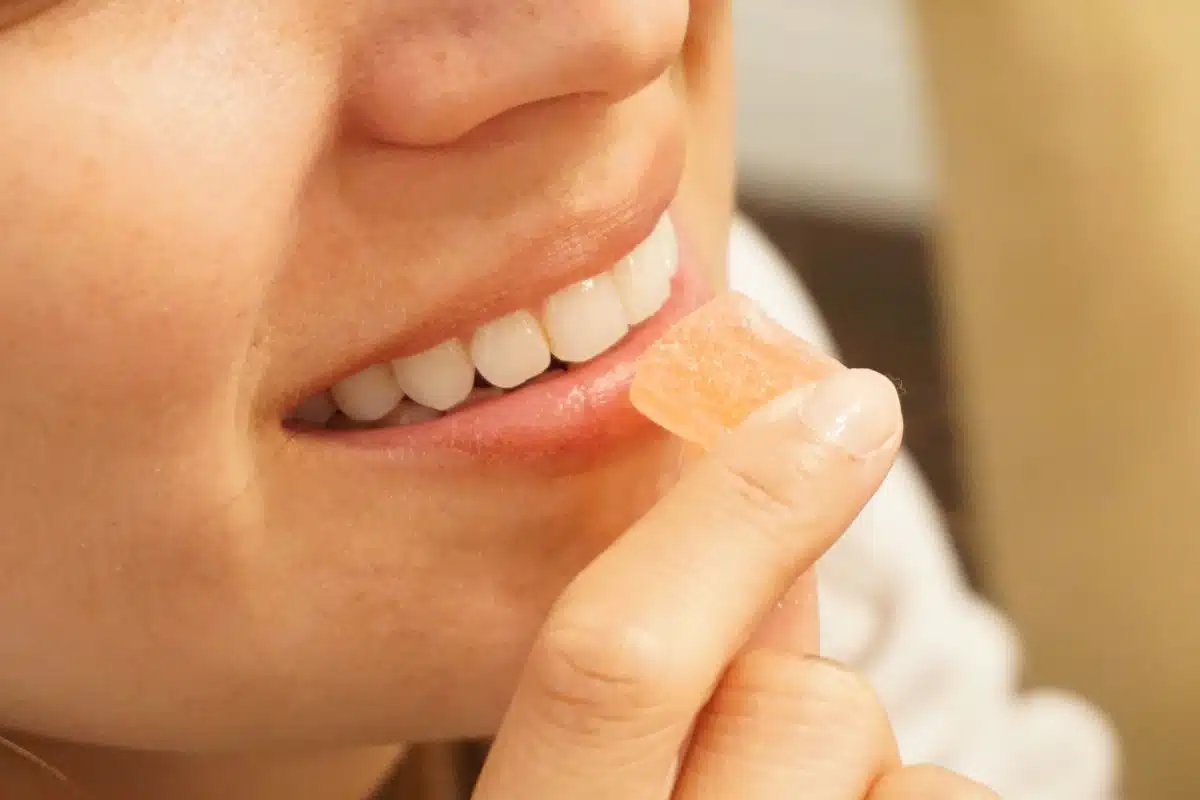
For beginners, it’s recommended to For beginners, it’s recommended to start with a low dose of 5-10mg of Delta 8 THC, adjusting based on body weight to assess tolerance. This helps assess tolerance and minimizes the risk of unpleasant side effects, especially for those dealing with chronic pain . Experienced users can gradually increase their dose to 30-60mg for a stronger effect. Always start low and go slow to find the optimal dose for your needs.
Delta 8 THC in Hemp vs. Marijuana
Delta 8 THC is found in both hemp and marijuana, but it is typically derived from hemp due to legal restrictions. Hemp contains trace amounts of Delta 8, but the concentration is so low that it requires extraction and conversion from CBD to produce potent Delta 8 products. In contrast, marijuana strains with higher THC content often contain only small amounts of Delta 8.
How is Delta 8 Made?
Delta 8 THC is not naturally abundant in cannabis plants, so manufacturers use a process known as isomerization. This process converts CBD from hemp into Delta 8 THC, which is then typically synthesized and refined into distillates and used in various products. While Delta 8 can be synthesized, the raw material typically comes from hemp-derived CBD, raising some safety concerns .
How Delta 8 Affects the Body
| Body System / Area | Effect of Delta-8 THC |
|---|---|
| Brain & Nervous System | Mild euphoria, relaxation, enhanced mood, and reduced anxiety due to interaction with CB1 receptors |
| Appetite & Digestion | Increases appetite (“the munchies”) and may reduce nausea |
| Pain Response | Can help reduce mild to moderate pain and inflammation through interaction with endocannabinoid system |
| Sleep Cycle | Promotes drowsiness and better sleep in some users, especially at higher doses |
| Cognitive Function | May cause slight short-term memory changes, lightheadedness, or decreased focus |
| Heart Rate | Possible mild increase in heart rate, especially in new or sensitive users |
| Coordination & Motor Skills | May impair motor skills temporarily — not recommended before driving or operating machinery |
| Stress Response | Helps reduce cortisol levels, leading to a sense of calm and reduced tension |
| Tolerance & Dependence | Tolerance builds over time; physical dependence is low, but psychological reliance is possible with overuse |
Delta 8 THC interacts with the human body’s endocannabinoid system, which helps regulate various physiological processes, including mood, pain, sleep, and appetite. When consumed, Delta 8 binds to cannabinoid receptors in the brain, producing effects such as relaxation, pain relief, and a sense of euphoria.
Therapeutic Benefits of Delta 8 THC
Early studies and anecdotal evidence suggest that Delta 8 THC may offer health benefits and therapeutic benefits, including stress reduction, anxiety relief, pain management, and anti-nausea properties. It has been especially noted for its potential to alleviate the side effects of chemotherapy, such as nausea and vomiting, making it relevant in discussions around intravenous administration .
Side Effects of Delta 8 THC
Like other forms of THC, Delta 8 can cause side effects, although they tend to be less intense than those associated with Delta 9. Common side effects include dry mouth, red eyes, dizziness, and drowsiness. In some cases, users may experience mild anxiety or paranoia, though this is less common with Delta 8.
Delta 8 vs. CBD: Key Differences
Delta 8 THC and CBD are both derived from cannabis plants, but they have very different effects. While CBD is non-psychoactive and is commonly used for its therapeutic benefits, Delta 8 is psychoactive and produces a mild high. Unlike CBD, Delta 8 can lead to euphoria, relaxation, and an altered state of mind, characteristics commonly associated with cannabis sativa .
Delta 8 vs. Delta 10 and HHC
Delta 10 and HHC are other cannabinoids that are similar to Delta 8 but differ in their potency and effects. Delta 10 is less potent than Delta 8, while HHC is slightly stronger. Delta 8 is the most popular of the three due to its balanced effects, while Delta 10 is preferred by those looking for a more clear-headed experience.
Legality of Delta 8 THC
Delta 8 THC exists in a gray legal area. While the 2018 Farm Bill legalized hemp-derived cannabinoids, some states have moved to ban Delta 8 THC products. It’s essential to check your local state laws to understand whether Delta 8 is legal in your area, as regulations are continuously changing.
FDA and DEA Stance on Delta 8
| Agency | Stance on Delta-8 THC | Key Notes |
|---|---|---|
| FDA (Food & Drug Administration) | Not approved for any medical use. Expresses safety concerns due to lack of regulation. | Warns consumers about unregulated products, misleading labeling, and possible contaminants. |
| DEA (Drug Enforcement Administration) | Technically illegal if synthetically derived (under the Controlled Substances Act). | If Delta-8 is made synthetically from CBD, it may be considered a Schedule I controlled substance. |
| Regulatory Status | In a gray area federally depending on source (hemp-derived vs. synthetic) | Legal if derived from hemp and contains <0.3% Delta-9 THC, per the 2018 Farm Bill. |
| Enforcement Action | Has issued warning letters to companies making medical claims or selling unsafe Delta-8 products. | No full ban, but increasing scrutiny and enforcement of mislabeled or unsafe products. |
| Consumer Guidance | Advises caution, especially among minors, pregnant women, and those with health conditions. | Recommends buying only from reputable, lab-tested sources. |
The FDA has not approved Delta 8 THC for medical use in cannabis , and the DEA has issued warnings about the potential dangers of synthetic cannabinoids. While Delta 8 is federally legal under the 2018 Farm Bill according to federal law, it raises questions about regulation at the federal level. , the lack of oversight in its production and sale has raised concerns related to substance use .
Conclusion
Delta 8 THC offers a unique alternative for those seeking the benefits of cannabis without the overwhelming potency of Delta 9 THC. With its moderate psychoactive effects, potential therapeutic benefits, and availability in a wide range of products, Delta 8 has carved out a significant niche in the cannabis market compared to those with greater potency . However, the variability in product quality, especially of the products sold lack of regulation, and evolving legal landscape make it essential for consumers to stay informed and cautious. Understanding how much THC is in Delta 8, how it compares to other cannabinoids, and what effects to expect can help you make more confident and responsible choices, ultimately benefiting public health . As chemical research continues and laws develop, Delta 8 THC may play an even more prominent role in the future of hemp-derived wellness and recreational use.
Frequently Asked Questions (FAQ)
Is Delta 8 THC the same as Delta 9 THC?
No, Delta 8 THC is a different form of THC with a slightly altered chemical structure. It is less potent than Delta 9 and produces milder psychoactive effects, which has garnered interest in social research .
How much THC is typically in Delta 8 products?
Most Delta 8 products contain between 10-30mg of Delta 8 THC per serving, though some high-potency items may contain up to 100mg.
Can Delta 8 THC get you high?
Yes, Delta 8 can produce a high, but it is generally described as more mellow, clear-headed, and less anxiety-inducing than Delta 9.
Is Delta 8 THC legal?
Delta 8 is federally legal under the 2018 Farm Bill if derived from hemp, but its legality varies by state, emphasizing the importance of understanding state laws . Always check your local laws before purchasing.
Does Delta 8 THC show up on a drug test?
Yes. Delta 8 can trigger a positive result on a drug test that screens for THC because it is chemically similar to Delta 9.
Is Delta 8 safe to consume?
While many users report positive experiences, Delta 8 is not well-regulated, especially among various hemp plants and product quality can vary, leading to potential contamination with heavy metals . Always purchase from reputable sources and consult with a healthcare provider if you have concerns.
How long do the effects of Delta 8 last?
Effects can last 1–3 hours when vaped and 4–8 hours when taken as an edible, depending on dosage and individual metabolism.
Can beginners use Delta 8 THC?
Yes, but it’s advised that beginners start with a low dose (5-10mg) to assess their tolerance and avoid potential side effects.
What are the side effects of Delta 8 THC?
Possible side effects include dry mouth, red eyes, drowsiness, dizziness, and—in rare cases—mild anxiety or paranoia.
Is Delta 8 THC natural or synthetic?
Delta 8 is naturally found in cannabis in small amounts but is often synthesized from CBD derived from hemp due to its low natural abundance, raising questions about its role in drug use .
How is Delta 8 different from CBD?
CBD is non-psychoactive and used primarily for therapeutic purposes, while Delta 8 produces a mild high and combines recreational and therapeutic effects, especially related to the agriculture improvement act .
Can Delta 8 THC be used for medical purposes?
Research is ongoing, but some users claim benefits for anxiety, pain, nausea, and sleep. It should not replace prescribed medication without a doctor’s guidance.
How should I store Delta 8 products?
Keep them in a cool, dark place, away from sunlight and heat. Proper storage maintains potency and prevents degradation.
Is it safe to drive after using Delta 8?
No. Like Delta 9 THC, Delta 8 can impair coordination and reaction time. Avoid driving or operating machinery while under the influence.
Can pets consume Delta 8 THC?
No. Delta 8 is not safe for pets and may cause serious side effects. Only give animals veterinarian-approved CBD products formulated for pets.
How do I know if a Delta 8 product is high quality?
Look for third-party lab testing, transparent labeling, good customer reviews, and products made in licensed facilities.
Why is Delta 8 controversial?
It exists in a legal gray area, with concerns about synthetic conversion, product safety, and lack of oversight by federal agencies like the FDA.
How quickly does Delta 8 take effect?
Inhaled Delta 8 (like vapes) can take effect within minutes, while edibles may take 30–90 minutes to kick in.
Can Delta 8 interact with medications?
Yes, it may. Speak with a healthcare provider before using Delta 8 if you’re on medication, especially for blood pressure, anxiety, panic attacks or depression, as it may be banned in a dozen states .
Is Delta 8 THC addictive?
While not physically addictive, regular use can lead to psychological dependence in some individuals. Use responsibly and be aware of any age restrictions that may app .

